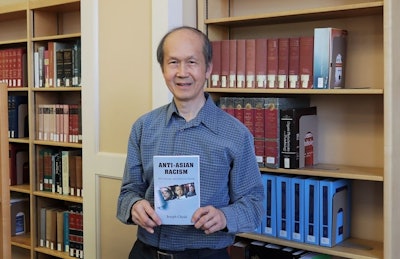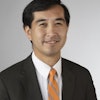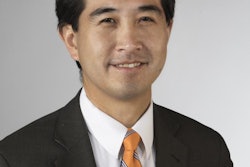As an undergraduate student at the University of Southern California, the Reverend Dr. Joseph Cheah said that he would spend hours at the bookstore, reading about Asian American studies. Dr. Joseph Cheah
Dr. Joseph Cheah
“The whole notion of Asian American things like that, I've been interested in that for a long time,” Cheah said. “I would just stand there for hours, reading one book after another in Asian American studies. For the first time, I read somebody talking about me, and most of the books do not talk about me. ... This was the first time that people were actually talking about me and my background. I was fascinated by that."
Cheah proceeded to make Asian American studies part of his career, primarily focusing his scholarship on race and religion. He is currently chair and professor in the Department of Philosophy, Theology, and Religious Studies at University of Saint Joseph Connecticut.
And recently, he released his latest book Anti-Asian Racism: Myths, Stereotypes, and Catholic Social Teachings, which highlights pervasive and destructive stereotypes that the Asian American Pacific Islander (AAPI) community faces: perpetual foreigner, Yellow Peril, and the myth of the model minority.
Cheah – who is Chinese-Burmese– said that the perpetual foreigner stereotype manifests itself in how people not of Asian ethnicity often ask where someone “was really from.”
“That means that people consider people from Asian ancestry as foreign,” Cheah said. “It doesn't matter how many years you're living here. It doesn't matter whether you're born here. It doesn't matter [that] your family came here generations ago. People are not satisfied with whatever answer we give them when they ask us, 'Where are you from?' They are expecting an Asian name, Asian country. They already pegged you down as a foreigner. You don't look like an American.”
He said that racist fears of Yellow Peril currently relate to the COVID-19 pandemic, during which anti-Asian sentiment and incidents have seen increases.
“Yellow peril is the racial construct that came from 19th-century Europe, fear of invasion of these uncivilized dangerous people from Asia. We are seen as enemies,” Cheah said. “It shows up in times of economic crisis. It shows up in times of tension between U.S. and Asian nations, especially tensions and war between U.S. and Asian nation states, like in WWII, where Japanese Americans were incarcerated. It also shows up in times of public health crisis, like COVID-19. In a way, we become scapegoats for all the problems."
Cheah holds a B.S. from the University of Southern California; a M.Div. from the Franciscan School of Theology; an M.A. in theology from the Graduate Theological Union (GTU); and a Ph.D. in cultural and historical studies of religions from GTU.
He has also authored other works, including Race and Religion in American Buddhism: White Supremacy and Immigrant Adaptation.
Dr. Grace Ji-Sun Kim, a professor of theology at the Earlham School of Religion said that Cheah's book is much needed.
"Dr. Cheah’s book on Anti-Asian Racism could not have appeared at a more appropriate time than today. He has written an important book that highlights the persistency of anti-Asian racism rendered invisible in church’s documents and in much of the politics of U.S. racial discourses," said Kim. "It is an essential reading for those in academia and pastoral ministries."
Cheah said that harmful stereotypes about Asians often occur subtly and make it difficult to explain to others what it means or feels to be Asian American. And yet, reasons to share the experiences of Asian Americans persist.
"I think it's important to tell our story and experiences, even if not too many people are listening, because our stories are gifts and contributions deemed essential to what it means to be Americans in the U.S., what it means to be American Catholic, what it means to be Asian American Buddhist in American Buddhism, and so on and so forth," Cheah said. "At the larger level, our stories and experiences are some of the missing pieces necessary for the attainment of authentic racial justice, which cannot be achieved until all the various groups are included in the fabric of Americanness."















